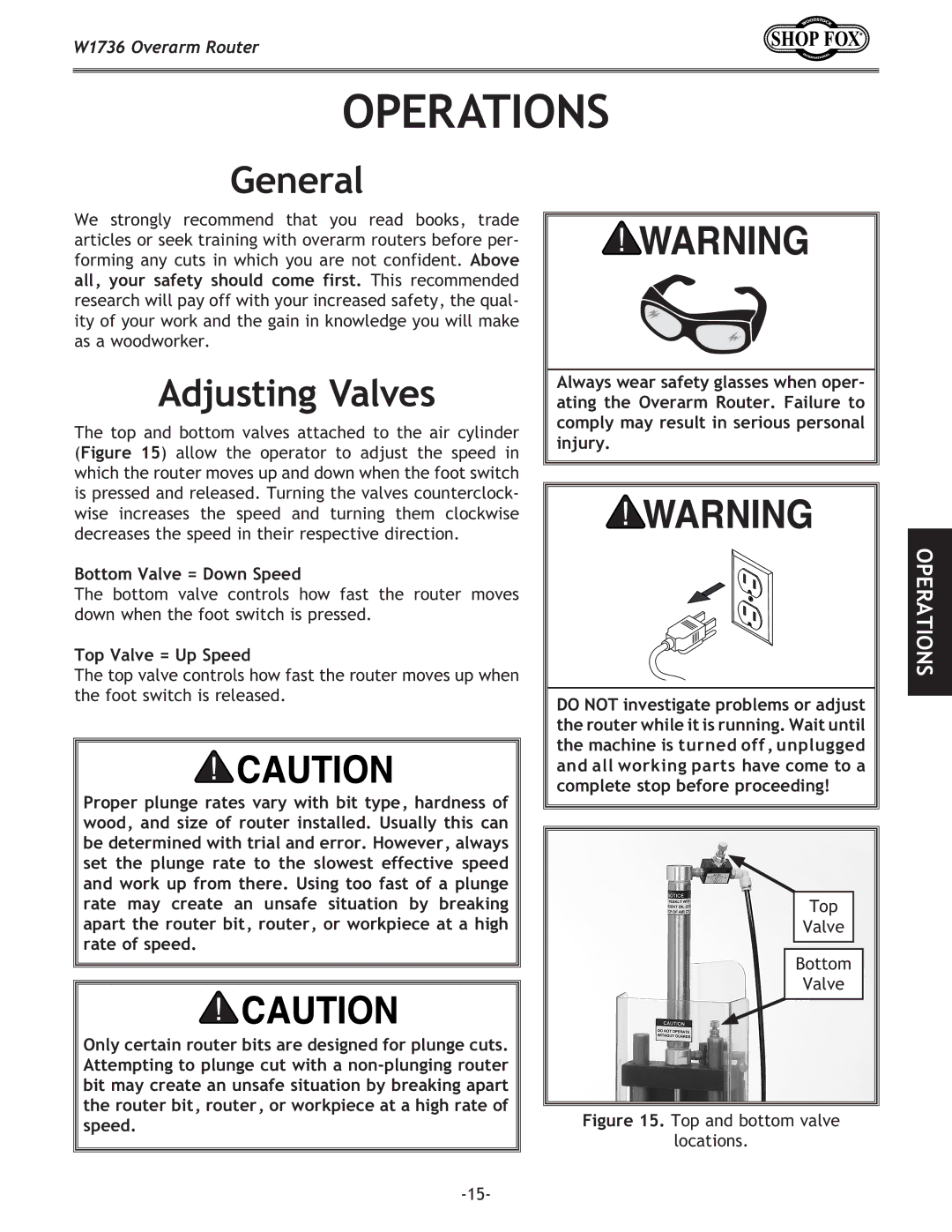W1736 specifications
The Woodstock W1736 is a remarkable addition to the world of woodworking and carpentry tools, particularly renowned for its versatility and precision. Tailored for both professionals and DIY enthusiasts, this woodworking machine embodies the combination of power, performance, and ease of use, making it an essential tool for a variety of projects.One of the standout features of the Woodstock W1736 is its robust construction. Built with high-quality materials, it ensures durability and longevity, allowing users to tackle heavy-duty tasks without worrying about wear and tear. The machine is equipped with a powerful motor that provides ample strength for cutting, shaping, and finishing different types of wood. The motor's efficiency translates to a smooth operation, significantly reducing the time spent on projects while maintaining accuracy.
The design of the W1736 also emphasizes user comfort and control. Its ergonomic features allow operators to work for extended periods without experiencing fatigue. The adjustable settings enable users to customize the depth and speed of cuts according to their specific requirements. This flexibility makes the W1736 suitable for various applications, from intricate detailing to large-scale projects.
Another notable technology integrated into the Woodstock W1736 is its precision engineering. The machine is designed with a state-of-the-art alignment system, ensuring that every cut is accurate and true. This precision is crucial for both aesthetic and structural aspects of woodworking, saving time on adjustments and reworks. Additionally, the W1736 features easy-to-read scales and measurement indicators, enhancing the user experience further.
Safety is a primary consideration in the design of the Woodstock W1736. The machine includes several safety features, such as blade guards and emergency shut-off switches. These elements provide peace of mind, allowing users to focus on their woodworking tasks without constant worry about potential accidents.
In conclusion, the Woodstock W1736 is an exceptional machine that caters to the needs of various woodworking projects. With its powerful motor, user-friendly design, precise engineering, and safety features, it stands out as a reliable choice for both professional craftsmen and hobbyists. Whether you're engaged in cabinetry, furniture-making, or artistic wood designs, the W1736 proves to be an indispensable tool that enhances both performance and creativity in woodworking endeavors.

